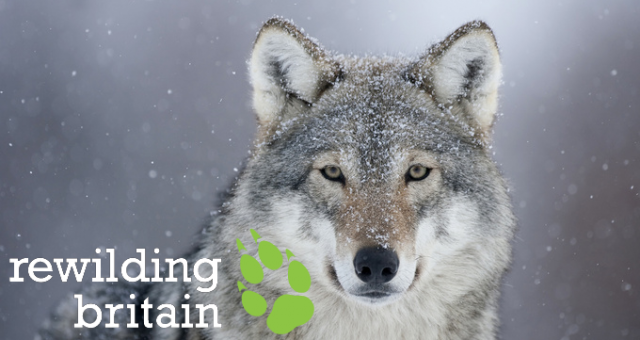
Rewilding Britain launched to bring back Britain’s wild species
Rewilding Britain is the first charity of its kind in Britain, it’s been set up as an independent charity with the aim of working to restore native forests to our hills, help parts of the sea recover from industrial fishing and bring back long since gone species to the UK.
Rewilding Britain’s founders have spent the last two years fund raising along with gathering different viewpoints from a wide range of individuals and organisations in the UK and further afield, including Friends of the Earth, Forestry Commission, Trees for Life, John Muir Trust, Cairngorms National Park, and the National Trust.
The charities key aim is to restore species to our shores that used to live here but have since become extinct or very rare. The charity wants to see animals including beavers, wild boar, bison, cranes, pelicans, sturgeon, bluefin tuna, lynx and eventually wolves, grey whales, humpbacks and sperm whales back in Britain and around our shores.
“Rewilding Britain will help to bring the land and seas of this beautiful country back to life. I’m delighted that this is happening. It’s great news for wildlife and for people.”
Hugh Fearnley-Whittingstall, broadcaster and real food campaigner.
Rebecca Wrigley, programme manager for Rewilding Britain, said: “An important part of our work will be to inspire and inform, and build a wider movement for rewilding. Rewilding projects on the ground will be locally owned and locally run. Our new website features a selection of fantastic rewilding projects that are already up and running across Britain and beyond.
“We hope we can gather a groundswell of support. We want to amplify the message that some pioneers have been putting out, defuse urban myths and attract new support. Rewilding is really for everyone who cares about our future. Our ecosystems need us.”
George Monbiot a key supporter of the organisation said: “The overwhelmingly positive response to Feral was quite unexpected. It seems the book put into words what many people were thinking and longing for. I am thrilled that it has led to the formation of Rewilding Britain.”
“The changes we’re calling for would be considered unexceptional almost anywhere else in Europe, where in many countries populations of beavers, boar, lynx and wolves are already recovering rapidly. So far the public appetite for change here has had few outlets. We want to change that, and to restore the living world and our relationship with it.”
You can read Rewilding Britain’s Full Press Release below or view it here:
http://www.rewildingbritain.org.uk/press/new-charity-seeks-the-mass-restoration-of-britains-wildlife
Full Press Release:
New charity seeks the mass restoration of Britain’s wildlife
A new organisation, the first of its kind in Britain, is launching along with its new website on Tuesday. Rewilding Britain is looking to bring back missing species, allow native forests to grow once more on the hills, let rivers run wild and help parts of the sea recover from industrial fishing.
It will seek to restore species that used to live here but have since become extinct or very rare. These include beavers, wild boar, bison, cranes, pelicans, sturgeon, bluefin tuna, lynx and eventually wolves, grey whales, humpbacks and sperm whales. Rewilding Britain hopes to establish at least three core areas of rewilded land by 2030, which means, in each case, 100,000 hectares or more.
Rebecca Wrigley, programme manager for Rewilding Britain, said: “An important part of our work will be to inspire and inform, and build a wider movement for rewilding. Rewilding projects on the ground will be locally owned and locally run. Our new website features a selection of fantastic rewilding projects that are already up and running across Britain.”
“We hope we can gather a groundswell of support. We want to amplify the message that some pioneers have been putting out for decades, and attract new support. Rewilding is really for everyone who cares about our future. Our ecosystems need us.”
Rewilding Britain was inspired by the success of George Monbiot’s book Feral: rewilding the land, sea and human life. This tapped into a hitherto-unnoticed public desire for change. Subsequent excitement about the prospects of returning beaver and lynx reinforced the belief that many people would like Britain to become a wilder place.
George Monbiot will be a key supporter of the organisation. He said: “The overwhelmingly positive response to Feral was quite unexpected. It seems the book put into words what many people were thinking and longing for. I am thrilled that it has led to the formation of Rewilding Britain.”
“The changes we’re calling for would be considered unexceptional almost anywhere else in Europe, where in many countries populations of beavers, boar, lynx and wolves are already recovering rapidly. So far the public appetite for change here has had few outlets. We want to change that, and to restore the living world and our relationship with it.”


